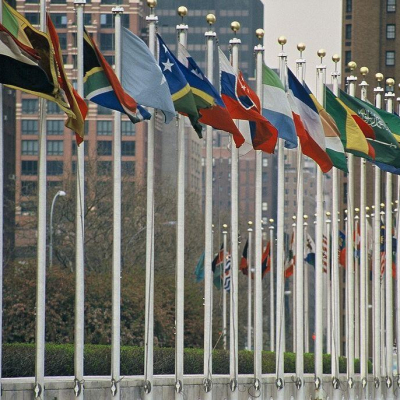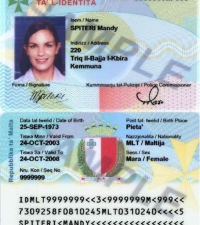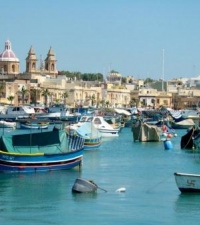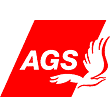Residence Permits: Non EU or Third Country Nationals

Residence permit regulations in Malta are changing with the anticipated implementation of the Blue Card system. However, as of this writing, the following regulations still apply.
Residence permits are issued by the Department for Citizenship and Expatriate Affairs. This office is located in the Castille Place building, between Upper Barrakka Gardens and the Auberge de Castille, in Valletta. Go early in the day as the office is only open 830hrs/8:30am to 1130hrs/11:30am and lineups/queues can be long.
Contact Information:
Department for Citizenship and Expatriate Affairs
3, Castille Place
Valletta VLT 2000
Malta
Tel: +356 2200 1800
Fax: +356 2200 1830
Email: citizenship@gov.mt
Overview
Residence permits are issued to third country nationals (TCN’s) who have been authorized to reside in Malta for a specific purpose, such as employment, self-employment, health reasons, economic self sufficiency, retirement, study, family reunification, long-term residence, to live with a partner, etc.
Residence permits are valid for one year, unless the TCN is considered a long-term resident (see below). The validity of the permit may be less if the purpose of stay has a specific time-limit (e.g. studying in Malta for 10 months) or if your passport is to expire before the period of one year. When your residence permit has expired, you must apply for a new one.
Residence permit fees are €23.29 per year. Cheques should be made payable to Director, Citizenship & Expatriate Affairs. Fees can also be paid in cash in person at the Department of Citizenship and Expatriate Affairs.
Residence Permit application forms for TCN’s (CEA/20 forms) can be downloaded here.
Employment/Self-Employment/Health Reasons
Applicants applying for a residence permit for employment, self-employment, or health reasons must present necessary documents to support his/her claim, such as a copy of a work permit for employment, a copy of a work permit/trading license for self-employment, or a hospital or medical certification in the case of illness.
Economically Self-Sufficient Persons/Pensioners/Retired Persons
Applicants applying for a residence permit as an economically self-sufficient person, pensioner, or retired person do not need to submit documentary evidence about income and accommodation. They must, however, obtain a permit under the conditions of the Permanent Residence Scheme from the Commissioner of Inland Revenue (CIR) and must apply for a uniform residence permit under this category. They must also present proof of health insurance for themselves and their family members.
TCN’s who are economically self-sufficient may only apply for a residence permit if they are taking up temporary residence in Malta. Prospective applicants must submit a letter with their application giving details about their background, and the reason(s) why they wish to take up temporary residence in Malta. Such applications are considered on a case-by-case basis.
Economically self-sufficient applicants must have a minimum income of €13,976 in Malta, or €16,305 if the applicant is married. An additional sum of €2,329 is required for each of the applicant’s children. These amounts are exclusive of accommodation expenses. Economically self-sufficient applicants must also produce proof of health insurance for themselves and their family.
Partners
Individuals applying for a residence permit as a (non-married) partner of a Maltese citizen must provide evidence of a stable income of at least €8,885 (or minimum wage + 20%). The partnership must have subsisted for more than two years. Partners must also provide proof of health insurance.
Study
Students admitted to study at the University of Malta or another private college officially authorized to conduct higher education courses should apply for a residence permit for study. Applicants must present a passport valid for the duration of studies, a parental declaration authorizing a minor’s stay in Malta (if applicable), proof of health insurance, proof of acceptance to the educational institution, evidence of sufficient funds for the duration of studies (including tuition and return travel costs), evidence of sufficient knowledge of the language of the course to be followed, and proof of payment of tuition. Students must also undergo health screenings.
Residence permits for study are valid for one year or the duration of studies.
Students taking English language (ESL/EFL) courses in Malta must also apply for a residence permit if the length of their course is more than 90 days (visa length). ESL/EFL students must present an application form, 2 passport sized photos, a letter of acceptance from their educational institution, proof of financial means of support during their studies (€48/day), and proof of health insurance.
Family Reunification
TCN’s legally residing in Malta for more than 1 year may apply for the reunification of family members. Spouses must be 21 years of age or older, and children must be 18 years of age or younger.
TCN’s can only sponsor family members if they have reasonable prospects of permanent residence in Malta, accommodation, and has stable and regular income equivalent to the average wage in Malta (€14,565 in 2010) + 20% for each member of his/her family.
As long as the TCN’s family members are not a threat to public security or safety, they shall be allowed to join the sponsor, receive a residence permit, and have access to employment, self-employment, educational and vocational guidance, etc.
After five years in Malta family members are entitled to an autonomous permit.
Long-Term Residence Status
Long-Term residence (LTR) status is granted to persons legally residing in Malta for a continuous 5 year period. LTR status is valid for 5 years and automatically renewable upon application.
To become a LTR you must provide evidence that you have legally resided in Malta for 5 years immediately prior to your application (during this time you would have held one of the aforementioned residence permits for each of these years of residency). Applicants may only leave the island during this period for a period shorter than 6 consecutive months or a total of 10 months. Applicants must present a list, in chronological order, of his/her arrivals and departures in Malta during this 5-year period, according to the date stamps contained in his/her passport.
Applicants must also attest they had stable and regular resources sufficient to maintain themselves and their family members, equivalent to the average wage (€14,565 in 2010) + 20% for each member of his/her family.
Applicants must also demonstrate they had accommodation for those 5 years, which was not shared with other persons who are not their family. Applicants must also show proof of health insurance.
Applicants must also attend a course organized by the Employment and Training Corporation (ETC) about the social, economic, cultural, and demographic history and environment of Malta for at least 100 hours. Applicants must also write an examination with a pass rate of 75%.
Applicants must also be assessed by the Malta Qualifications Framework Level 2 in Maltese or English and receive a 75% pass mark.
Applicants must also submit a letter detailing their history since they arrived in Malta, including the grounds on which they arrived and stayed in Malta, their employment history since then, and current and previous premises occupied by them and their family members in Malta.
Third Country Nationals with Long Term Residence Permits in Other EU Member States
TCN’s granted LTR status in another EU Member State may reside in Malta for a period exceeding 3 months so long as they are employed or self-employed, pursuing studies or vocational training, or in Malta for another indicated purpose for which they must provide documentary evidence.
TCN’s in this situation must submit a CEA/20 residence permit application form no later than 3 months after entering Malta, and must provide proof of accommodation and health insurance.
They must also provide proof of resources sufficient to maintain yourself and your family members, equivalent to the average wage (€14,565 in 2010) + 20% for each member of his/her family, proof of proficiency in English or Maltese, proof of long-term residence permit from another EU Member State.
TCN’s Married to Maltese Nationals
TCN’s (aged 21+) married to Maltese nationals, or the TCN children of Maltese nationals under the age of 18, are exempt from residence permit requirements. Such individuals are issued a residence permit that reflects their exempt status, valid for 5 years or until the expiration of his/her passport.
By Jess Gerrow, who traded city life in Canada for island life in the Mediterranean two years ago. She is a postgraduate marketing student, blogger, and freelance writer.
- My Life Abroad -
A selection of expat stories

"A fun compulsive read!"
J. Matcham, Amazon
"I strongly advise people ready to live abroad to read this book!"
Patrice, Amazon

 Embassies and Consulates in Malta
Embassies and Consulates in Malta  Getting an ID Card
Getting an ID Card A Visa for Malta
A Visa for Malta
 AGS Worldwide Movers
AGS Worldwide Movers Fexco payment solutions
Fexco payment solutions 1stMove Car Shipping
1stMove Car Shipping